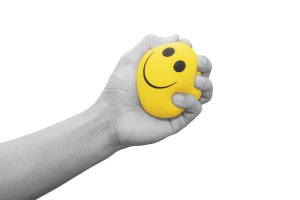By – James M. Katz, BA
Why are stress management techniques and effective ways to reduce stress important? People today face stress levels never seen before. 77% of adults say stress affects their physical and mental well-being. The ever-changing world of today makes stress management techniques valuable tools to stay healthy. These evidence-based methods help people feel less anxious, think more clearly and keep their emotions in check throughout the day.
This piece shows you quick ways to handle stress that you can start using right away. You can try mindfulness meditation, physical activities, thought-based approaches or lifestyle changes. These techniques work differently depending on your stress levels. Building a strong support system and learning healthy ways to cope will help you manage stress better over time.
Understanding Stress and Its Impact
Stress is your body’s natural reaction to physical and psychological challenges. If you have stressful situations, your body activates interconnected neuroendocrine circuits that trigger specific physiological changes. Your body uses this response to face challenges and restore balance, though its success depends on how you perceive the stressor’s predictability and control.
Definition of stress
Our brain’s cortical centers detect disturbing stimuli and trigger the stress response. This detection activates pathways that flow through the limbic system. The brain’s response triggers two major systems – the sympathetic-adrenal-medullary axis and the hypothalamic-pituitary-adrenal (HPA) axis. Stress hormones like adrenaline and cortisol surge through the body and regulate cardiovascular and metabolic functions to ready us for life’s challenges.
Physical and mental effects of chronic stress
Chronic stress leads to the most important health complications. Research shows that extended exposure to stress affects multiple systems throughout the body:
• Cardiovascular: Higher risk of high blood pressure and heart disease
• Immune system: Reduced function and increased inflammation
• Digestive: Changes in weight and gastrointestinal problems
• Cognitive: Problems with memory and focus
• Emotional: Greater risk of anxiety and depression
Research reveals that people’s blood pressure levels and overall stress increase as they mentally dwell on stressors. The persistent activation of stress hormones damages blood vessels and arteries, which raises the risk of heart attacks and strokes.
The stress continuum
The stress continuum model helps us understand how stress levels change and what they mean for us. This model breaks down stress into four zones:
- Ready Zone (Green): People in this zone feel calm and function at their best. They stay confident and maintain good balance between mind, body, and spirit.
- Reacting Zone (Yellow): This zone shows up with short-term stress signs that usually go away on their own. You might notice irritability, trouble sleeping, or problems staying focused.
- Injured Zone (Orange): Your personality might start changing in this zone as stress gets worse. Nightmares keep coming back, thinking clearly becomes hard, and you could feel deep guilt or shame.
- Ill Zone (Red): The most serious zone brings severe stress that doctors can diagnose. It can lead to post-traumatic stress, anxiety, or depression.
These zones help you spot your stress level and pick the right ways to handle it. Your body’s cortisol levels might stay high without enough recovery time, which can damage your cells. This knowledge helps create good stress management plans and tells you when it’s time to get professional help.
Mindfulness and Meditation Techniques
New research showed that mindfulness and meditation help manage stress and improve mental well-being. Mindfulness-based interventions reduce stress, anxiety, and depression especially.
Guided imagery
Guided imagery is a well-laid-out way to manage stress that blends mental visualization with relaxation techniques. This practice gives the ability to create deep relaxation states by engaging all senses in a peaceful mental scenario. Studies show that guided imagery can improve the mind-body connection and boost the immune system.
The practice works best when you:
1. Pick a quiet, comfortable space
2. Take deep, rhythmic breaths
3. Picture a peaceful setting with all your senses
4. Stay with the visualization for 10-20 minutes
5. Make it part of your daily routine
Mindfulness meditation
Science has proven that mindfulness meditation is one of the effective ways to reduce stress. Research demonstrates that participants who practiced mindfulness for eight weeks showed lower stress levels and better emotional control. The practice combines two key elements: attention and acceptance.
Regular mindfulness practice offers these benefits:
• The amygdala (brain’s stress-response center) becomes smaller
• The immune system works better with less inflammation
• Knowing how to handle anxiety and depression
• Better awareness of the present moment and emotional control
Deep breathing exercises
Deep breathing exercises play a vital role in managing stress and directly affect your body’s stress response. Regular practice activates the parasympathetic nervous system that helps you feel calm and relaxed.
The 4-7-8 breathing technique stands out as a powerful method. You breathe in for four counts, hold for seven, and breathe out for eight counts. Research shows that people who practice deep breathing exercises regularly handle stress better and experience less anxiety.
These exercises work best as part of your daily routine. Scientists have found that just 12 minutes of meditation practice for five days each week can protect and boost your attention span. Different stress management techniques create a mutually beneficial effect that enhances their overall impact.
Physical Activities for Stress Relief
Physical activity is one of the most effective natural ways to manage stress. It helps both your immediate and long-term mental and physical well-being. Scientists have found that [20 to 30 minutes of cardio can substantially reduce stress levels and lower cortisol levels – your body’s main stress hormone].
Benefits of exercise for stress management
Exercise significantly affects our body’s stress response system. Studies show that [regular physical activity improves how the body handles stress through hormonal responses, increasing the production of feel-good neurotransmitters like dopamine and serotonin]. The body experiences these physiological benefits:
• Lower levels of stress hormones adrenaline and cortisol
• Better blood flow and oxygen use
• Better sleep quality
• Stronger immune system function
• Lower blood pressure and heart rate
Yoga and stretching
Yoga stands out as an especially effective way to manage stress. [Research shows that practicing Hatha yoga three times weekly for four weeks led to major improvements in stress, depression, and anxiety levels]. The benefits go well beyond physical flexibility. [Yoga helps your mind and body relax while boosting your mood through endorphin release].
[A 2020 study showed how yoga stretches lower cortisol levels and have positive effects on parasympathetic nerve activity that helps you relax]. You can get the best stress relief results when you:1. Keep a regular practice schedule
2. Mix physical poses with breathing exercises
3. Add meditation to your routine
4. Move with awareness
5. Use correct form when you line up poses
Outdoor activities and nature therapy
- [Research shows that outdoor group exercise helps reduce stress better than indoor workouts. The natural environment offers unique benefits for mental health]. Nature immersion therapies have shown remarkable results in stress reduction by combining physical movement with environmental elements.
- [A simple 20 to 30-minute nature break can substantially lower your cortisol levels]. On top of that, [outdoor exercise helps lower blood pressure and heart rate. People who exercise outdoors report less anger, anxiety, and confusion].
- Physical activity combined with nature exposure creates a powerful stress-fighting duo. [Natural walks help lower your heart rate and blood pressure while triggering endorphin release]. These “happiness hormones” boost both athletic performance and create a lasting sense of wellbeing after outdoor sessions.
- [Health experts suggest starting with basic activities like walking, hiking, or cycling] to build an outdoor stress management routine. You should pick activities you truly enjoy rather than those that feel like a chore. This approach helps you stick to your exercise routine and reap long-term stress management benefits.
Cognitive Strategies to Manage Stress and Other Stress Management Techniques
Science has proven that cognitive behavioral techniques work well to handle stress. Research shows that CBT is as effective as or more effective than medications and other therapy approaches when it comes to stress management.
Positive self-talk
Your internal dialog substantially affects your stress levels and overall well-being. Studies show that positive self-talk can lead to multiple benefits. These benefits include enhanced cognitive performance, reduced anxiety levels, and better motivation. Experts suggest using second-person pronouns to maximize positive self-talk’s benefits. To name just one example, “You can do it” works better than “I can do it”. The process involves these steps:
• Identifying negative thought patterns
• Journaling to track internal dialog
• Practicing conscious thought modification
• Building a positive environment
Reframing negative thoughts
Cognitive reframing helps people turn stressful situations into manageable challenges. Research shows that our body’s stress response activates more from what we notice as stressful rather than the actual stressful events themselves.
The “Catch it, Check it, Change it” technique enables you to adjust your thought patterns:
1. Catch: Notice negative thoughts at the time they occur
2. Check: Get into the evidence that supports these thoughts
3. Change: Turn negative thoughts into neutral or positive ones
Time management and prioritization
Time management is a vital part of reducing stress. Research shows that you experience less stress and feel more confident about your abilities if you have organized tasks and clear priorities. Studies reveal that it takes about 25 minutes to get back to your original task after getting distracted.
The ABCDE Method helps you prioritize tasks effectively:
• A tasks: Must-do activities
• B tasks: Should-do activities
• C tasks: Nice-to-do activities
• D tasks: Delegation candidates
• E tasks: Elimination candidates
Experts suggest these strategies to manage stress through better organization:
• Design realistic schedules that allow flexibility
• Split big tasks into smaller, manageable pieces
• Set aside specific time blocks for important work
• Stay focused on one task since all but one of these people fail at multitasking
A systematic approach to these cognitive strategies helps you develop better stress management skills. The blend of positive self-talk, thought reframing, and smart time management creates a strong foundation to handle daily stressors and keep your emotional well-being intact.
Lifestyle Changes for Long-Term Stress Reduction
Effective stress management techniques depend on basic lifestyle changes that improve sleep, nutrition, and consumption patterns. Research shows these modifications can substantially reduce stress levels and enhance overall well-being.
Importance of sleep hygiene
Quality sleep is the life-blood of effective stress management. Research reveals that [adults who sleep fewer than eight hours a night report higher stress levels (5.5 vs. 4.4 on a 10-point scale) compared to those who sleep at least eight hours]. Sleep and stress create a cyclical pattern, and studies show that poor sleep quality affects 42% of adults, while 43% report stress-induced sleeplessness.
Everything in good sleep hygiene includes:
• Regular sleep and wake times
• A cool, dark, and quiet bedroom environment
• Light evening meals
• A calming 30-minute routine before bed
• Regular sleep diary entries to monitor patterns and progress
Balanced nutrition for stress management techniques
Your body needs more nutrients when it responds to stress. Studies show that [chronic stress can lead to increased nutrient uptake and excretion], which might worsen existing deficiencies. A balanced diet is a vital part of building stress resilience and maintaining emotional stability.
The best nutrition strategy to manage stress has these essential components:
Nutrient Type Benefits Sources
Complex Carbohydrates Promotes relaxation Whole grains, oats
Lean Proteins Supports neurotransmitter production Fish, eggs, legumes
Magnesium-rich Foods Reduces muscle tension Green vegetables, nuts
Omega-3 Fatty Acids Decreases stress markers Salmon, walnuts
Limiting caffeine and alcohol intake
Your caffeine and alcohol consumption plays a crucial role in managing stress. It would be a good stress management technique to practice moderation or avoid it altogether. Research shows that [high caffeine consumption after 4 PM can disrupt sleep patterns and increase anxiety levels]. Alcohol might seem to reduce stress at first, but [studies reveal it can make anxiety and depression symptoms worse].
These substances affect stress levels in several ways:
• [Caffeine raises cortisol levels and throws off blood sugar balance] • [Alcohol reduces how well you sleep, even though it helps you fall asleep faster] • [73% of children keep taking caffeine, which shows why we need to address these habits early]
Health experts suggest you should have caffeine only before 4 PM and drink alcohol in moderation to manage stress better. [Research indicates that too much caffeine can trigger anxiety and mood disorders, especially if you drink large amounts regularly].
These changes in daily habits create a strong base that helps you manage stress better. Your body’s stress response system works better when you stick to these changes. The best approach is to make small, eco-friendly changes instead of trying big lifestyle shifts that might be hard to keep up.
Building a Support System
Strong social connections play a key role in managing stress well. Research shows that social support greatly affects our physical and mental well-being. [People with strong social networks show better resistance to stress and experience fewer symptoms of anxiety and depression].
Importance of social connections
Social support’s effects go well beyond emotional comfort and influence our basic biological processes. Research shows that [social support moderates genetic and environmental vulnerabilities and affects the hypothalamic-pituitary-adrenocortical system, noradrenergic system, and central oxytocin pathways].
Quality relationships matter more than quantity. Studies reveal that functional support, which includes emotional and instrumental components, predicts good health better than structural support based on network size. Strong social connections offer several benefits:
• Lower levels of distress, depression, and anxiety
• Better skills to cope with challenges
• Clearer understanding of health resources
• Greater sense of control
• Better treatment adherence and recovery results
Seeking professional help at the time you need it
One of the best Stress Management Techniques is if stress starts affecting your daily life, you need professional support. [Group therapy works particularly well if you have experienced specific stressful events like natural disasters, child loss, or divorce]. Mental health professionals can help you through several approaches:
- Professional Type Specialization Benefits
- Psychologists Behavioral changes Identify triggers and develop management plans
- Psychiatrists Medical treatment Medication management and talk therapy
- Group Counselors Collective support Shared experiences and coping strategies
- Play Therapists Child-focused Age-appropriate stress management
Joining support groups and community activities
Support groups are a great way to get resources if you have stress to manage. They give emotional support and practical guidance. Research shows these groups bridge the gap between medical treatment and emotional needs effectively. These groups work in different ways:
Support Group Formats:
1. Face-to-face meetings
2. Teleconferences
3. Online communities
4. Hybrid arrangements
These groups typically feature educational sessions where healthcare professionals, psychologists, and social workers talk about specific needs. Their success comes from connecting people who share similar experiences.
Studies show that people who join support groups feel less isolated, less tired, and handle stress better. Research also points out that meaningful group activities like volunteering or joining social justice movements help create stronger networks and give people purpose.
You should think over these factors when picking a support group:
• How well the group matches your needs
• What meeting style works best for you
• Whether professionals lead the sessions
• What you can learn
• What it costs
Schools, universities, and workplaces can build better social support. They can switch virtual meetings to walking meetings or host social events. These approaches work well with personal efforts to build support networks.
Good social support doesn’t just help with stress – it affects physical health too. Research shows social support’s effect on how long people live is as important as obesity, smoking, high blood pressure, and exercise. Studies also reveal that people with strong social support react better to stress, with lower blood pressure and fewer heart-related responses. Mental health organizations keep lists of peer-run organizations and services across the United States. These resources help you find the right support groups and community activities near you.
Conclusion
A comprehensive approach to stress management techniques combines physical activities, mindfulness practices, cognitive strategies, and lifestyle changes. Research shows these techniques work together. They lower stress hormones, sharpen mental clarity, and boost overall well-being. Regular exercise, meditation, good sleep habits, and balanced nutrition create a reliable foundation to handle daily stress. Cognitive strategies give you practical tools to tackle challenging situations.
Your dedication to stress management techniques and a strong support network leads to lasting results. The path to reducing stress is different for everyone. You need to try different techniques and adjust them to your priorities. These proven methods build your resistance to stress when practiced regularly. They promote better physical and mental health. You can face life’s challenges with more confidence and emotional balance.
After review several stress management techniques, are you interested in become a certified stress management consultant? AIHCP offers a certification in Stress Management that will teach effective ways to reduce stress and help coach others to manage their stress. If you would like to learn more about AIHCP’s Online Stress Management Consulting program, please visit this link.
FAQs
- What is the most effective method for managing stress?
One of the most immediate and effective methods to manage stress is through deep breathing and mindfulness techniques. By concentrating on your breathing and staying fully present at the moment, you can disrupt the cycle of stress and anxiety. - What are some effective strategies for managing stress?
Effective stress management strategies include adapting to stressors, accepting things that cannot be changed, increasing physical activity throughout the day, managing time effectively, connecting with others, making time for fun and relaxation, and maintaining a healthy lifestyle balance. These strategies can help reduce stress in the moment and over time. - Can you list the 5 A’s of stress management?
The “5 A’s” of stress management include Avoiding unnecessary stress, Altering the situation, Adapting to the stressor, Accepting things that cannot be changed, and Activating a more physically active lifestyle. - Which therapy is most effective for managing stress?
Cognitive Behavioral Therapy (CBT) has been shown to significantly reduce mental health symptoms more effectively than medication alone. There is strong evidence supporting the effectiveness of CBT, meditation, and Mindfulness-Based Stress Reduction (MBSR) in managing stress.
Research Articles:
Psychological Stress, Its Reduction, and Long-Term Consequences: What Studies with Laboratory Animals Might Teach Us about Life in the Dog Shelter. Hennessy MB, Willen RM, Schiml PA. Animals. 2020; 10(11):2061. Access link here
Stress and Coping in the Time of Covid-19: Pathways to Resilience and Recovery. Polizzi C, Lynn SJ, Perry A. Clin Neuropsychiatry. 2020 Apr;17(2):59-62. Access link here
Emotional intelligence and its relationship with stress coping style. Fteiha M, Awwad N. Health Psychology Open. 2020;7(2). Access link here
Exploring stress coping strategies of frontline emergency health workers dealing Covid-19 in Pakistan: A qualitative inquiry. Khadeeja Munawar PhD, Et Al. American Journal of Infection Control Volume 49, Issue 3, March 2021, Pages 286-292 Access link here



